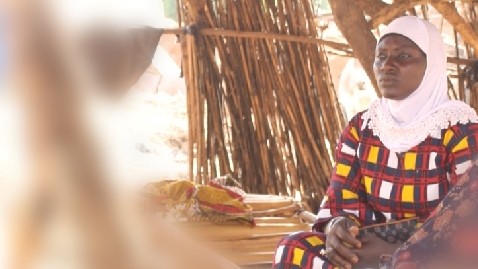10-06-2025 | di COOPI
Mali : Mental health support for victims of the Sahel crisis
The regions of Bankass and Koro in Mali are currently facing one of the most complex humanitarian crises in the world, linked to the broader emergency affecting the Central Sahel. The main cause is the exponential increase in insecurity recorded in recent years, exacerbated by a pre-existing situation of economic, social, and environmental vulnerability among local communities.
In this context, COOPI – Cooperazione Internazionale is implementing the project “Responding to the immediate health, nutrition and protection needs of the most vulnerable populations,” funded by the Italian Agency for Development Cooperation (AICS). A key component of the project focuses on the protection sector, aiming to address specific mental health and psychosocial support needs. The crisis has led to numerous cases of post-traumatic stress, anxiety, psychological disorders, and, in some cases, depression, all linked to the traumas experienced by affected populations.
Aisha (fictitious name) is a 23-year-old beneficiary from Balawa, in the commune of Ségué. After experiencing the trauma of losing her new husband in an armed attack in November 2024, Aisha began to show symptoms of acute stress, including mutism, sleep disturbances, and difficulty eating. Her family brought her to Bankass, where she was taken in by the mental health team of the COOPI-AICS project.
A multidisciplinary approach
?Following a psychological assessment, Aisha was referred to the referral health center for further medical evaluation and began receiving psychosocial support. The intervention included individual sessions, psychotherapy, and family meetings, with the goal of progressively restoring her cognitive, relational, and emotional functions. The COOPI team applied a holistic approach based on counseling, psychotherapy, and therapeutic storytelling through narrative techniques adapted to the local cultural context.
Community involvement through support groups also proved essential, as it allowed for a better understanding of the young woman’s experience and provided support for her family throughout the healing process. This helped to foster a more stable and nurturing environment for her recovery. Home visits enabled the team to closely monitor the context and Aisha’s progress.
After several weeks of support, Aisha showed positive signs of improvement, including the return of verbal communication and greater participation in daily activities. The support she received helped her strengthen her ability to cope with her experience and start building new perspectives for her future. Her family also benefited from the care provided. “Thank you to COOPI for its commitment to the affected people,” they said.

Aisha’s experience is a concrete example of the impact that integrated and timely interventions can have on psychological well-being in crisis settings. The protection activities of the project are part of a broader integrated multisectoral response aimed at improving access to and use of free, quality health and nutrition services, while also strengthening the resilience of populations affected by the crisis in the districts of Bankass and Koro. With the support of humanitarian aid from AICS, the project is reaching vulnerable populations in the Bankass and Koro areas, which have long suffered from the devastating effects of persistent insecurity.
COOPI has been working in Mali since 2013, in the Mopti and Ségou regions—areas with some of the highest rates of child malnutrition in the Sahel and serious concerns regarding human rights violations, particularly against children. The organization has developed a series of targeted interventions focused on child protection, food security, and psychosocial support to meet the urgent needs of the most vulnerable communities. Today, COOPI continues to work alongside Malian government institutions to ensure that crisis responses are timely and effective, with a focus on health, nutrition, and human rights protection. With nearly 60 projects and over six million beneficiaries reached between 2013 and 2025, COOPI remains a key player in the humanitarian landscape in Mali, supporting displaced persons, migrants, women, and children amid a complex and protracted crisis.




 Mali
Mali